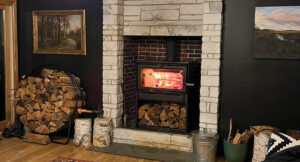 Fall is such a wonderful time of year. It’s not too hot, it’s not too cold and the leaves are absolutely beautiful. The mums, pumpkins, hay, cornstalks and scarecrows seem to be placed in perfect arrangements.
Fall is such a wonderful time of year. It’s not too hot, it’s not too cold and the leaves are absolutely beautiful. The mums, pumpkins, hay, cornstalks and scarecrows seem to be placed in perfect arrangements.
It is also the time of year when I hear this question over and over – “Should we buy an individual room heater?”
As winter inches closer, you will start seeing an assortment of individual room heaters for sale near the entry of home centers, drug stores, grocery stores, farm stores and other retail outlets. You may get different types of mail explaining why you should buy a certain room heater. You might see a full-page ad in a newspaper or magazine telling you that you might save 30 to 40 percent on your heating bill if you purchase and use a certain room heater. There are tall heaters and short heaters. There are heaters with lights and heaters with no lights. Some have fans and some do not. Some swivel back and forth to blow the air in different directions. Some look a little like a wood-burning fireplace. Others are in a nice looking cabinet with a cat sleeping on the top. And lastly, some cost $50 and others may cost $350.
Well, it all sounds interesting but it can also be confusing. Therefore, many of you ask me or the folks at your local electric co-op for advice. We, in turn, just try to give you the facts. Then you can make the decision. First, please understand that some room heaters are safer than others. I shudder when I hear a story about a child who has thrown a blanket over an open heater and a fire has occurred. Many fires occur each winter related to room heaters.
I think you will find that just about all of the advertised room heaters are rated at about 1,500 watts because that is about the maximum that you can plug into a regular 110-volt outlet without overloading the breaker. The formula is: amps x volts = watts. A typical outlet would be 15 amps x 110 volts = 1,650 watts. At 1,650 watts, that circuit could support a room heater and a couple of table lamps. (A typical handheld hair dryer uses 1,500 watts.)
Another formula that applies is: watts x 3.4 = British thermal units (Btu) per hour. So, regardless of how the 1,500-watt heater looks or sounds, or whether it uses lamps or elements, it can deliver a maximum of 5,115 Btu per hour for heat. In most cases, they deliver less than the maximum and are rated at 3,500 to 4,500 Btu per hour. My calculations show that a 12-foot by 12-foot room with 4-inch R-11 insulated walls, a 6-inch R-19 insulated ceiling and 2- to 3-foot by 4-foot windows would require about 4,400 Btu per hour of heat on a cold winter day. A 1,500-watt heater would probably heat that room if you kept the door to the room closed.
Now, for the rest of the story. ALL space heaters, regardless of their fuel source, cost money to operate. However, electric space heaters are 100 percent energy efficient and do not emit moisture or harmful carbon monoxide. When used properly, they are safer alternatives to firewood, propane or natural gas space heaters.
Some manufacturers proclaim their heaters use about the same amount of electricity as a small coffee pot, which may sound really good. Others say their heater only uses 15 cents per hour, which may also sound good. The truth is, on a cold winter day, electric heaters cost about $3.60 per day or $108 per month to heat one room if the unit is running 24/7. Propane and natural gas units, which have more volatile fuel costs, can cost even more to operate.
Many find these facts quite a shock to their wallet. But, there is an affordable solution to home comfort and manageable utility bills. That solution is proper energy efficiency construction and a properly installed heat pump or geothermal system. I can heat two-and-a-half rooms with a heat pump for $2 a day, and with geothermal, I could heat five rooms for $2 per day. At a new house built to our energy standards, we could heat about 3,000 square feet for $2 per day.
As always, feel free to call me if you have questions at 501-653-7931, and for more energy savings tips, visit www.SmartEnergyTips.org or your local electric co-op’s website. Happy Thanksgiving to you all.
Doug Rye can be heard on several different Illinois radio stations. You can go to Doug Rye’s Web site at www.dougrye.com, e-mail him at info@philliprye.com, or call 501-653-7931.







